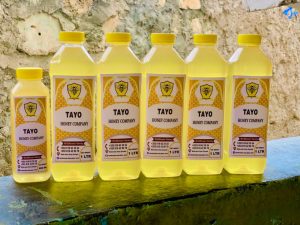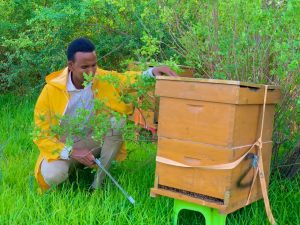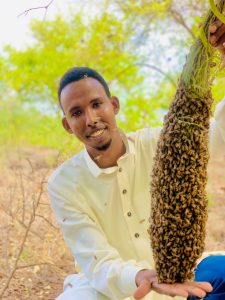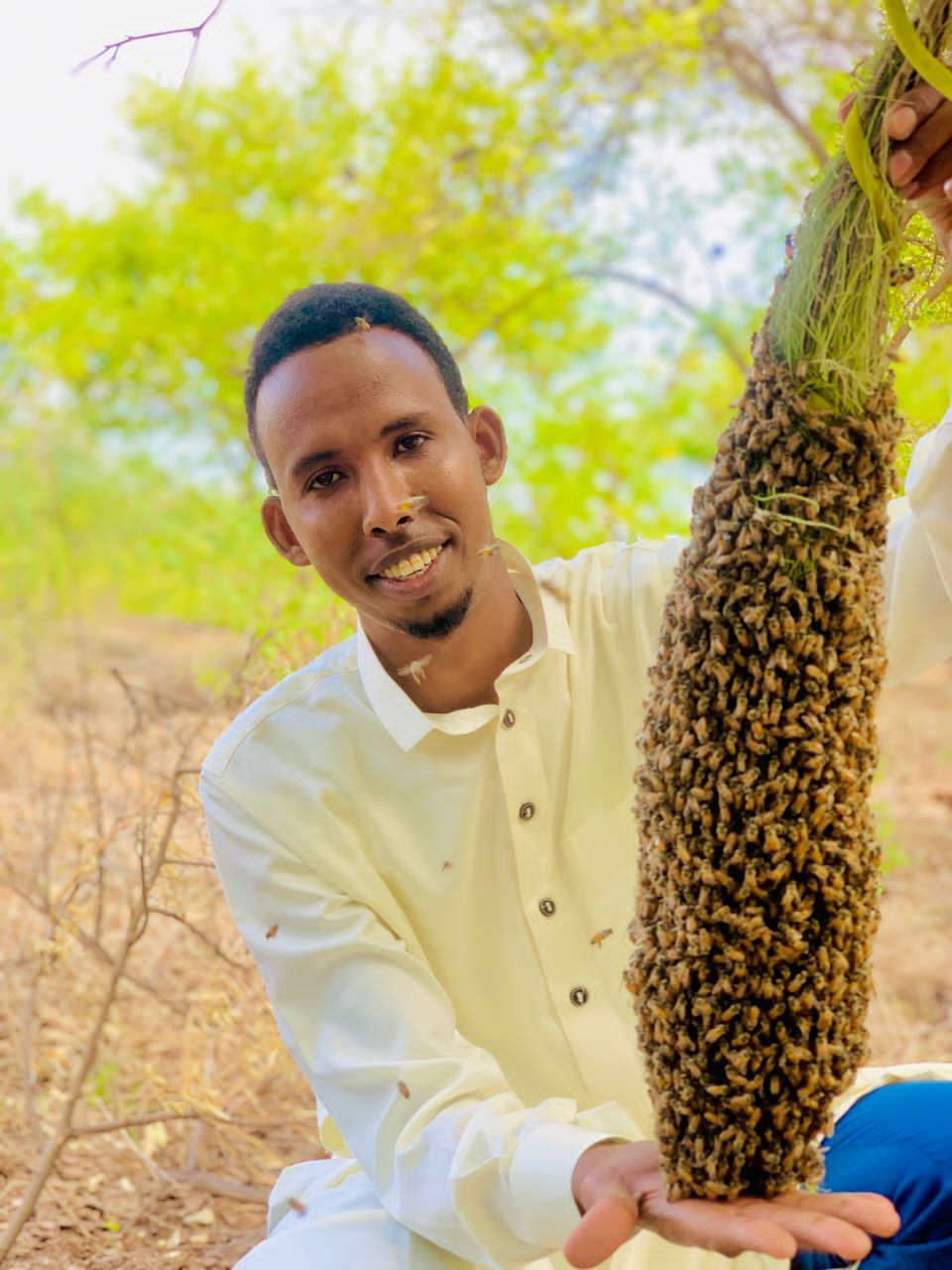While encountering many challenges along the way, Mohamed was motivated by his parents to continue pursuing his dreams to create his own business.
“Thousands of Somali students graduate from universities in my country, but job opportunities available are very limited and not often fair. I was thinking of an idea to create my own business as soon as I graduate because of unemployment problems in the country. Therefore, this idea and my parents support gave me the passion to further pursuing my ambitions ”, Mohamed said.
Mohamed is now running Tayo Honey Company, harvesting honeybee by producing 40 jerry-cans per month in his third-year successful business year.


His company distributes to markets in Hargeysa, Bosaso and Mogadishu where his supply of honey is sent. He has farms in areas between Beledweyne, Mataban and Mahas with teams working on beekeeping, and necessary activities related to this industry.
Mohamed said the increase or decrease of amount in production is seasonal and situational, depending on the flowers and certain flowering trees during the dry season or rainy season and says that his company sometimes makes mobile farms in this regard at either around Shabelle river banks or other remote zones to gain fruitful results.
“ Our beekeeping business industry is growing yearly, we have the capacity, knowledge to manage beehives for profit at this time, we have 110 bee boxes at our farms in the Hiiraan region.
This isn’t just a form of self-employment and sole business alone, but an opportunity other youths who are now working for Tayo Honey Company”, Mohamed said.
Mohamed is optimistic to have his beekeeping industry expand and flourish in the near future. “ I started this business from zero, and I am happy to be at this level where I run a productive company and staff, we have social media platform that we display our products, receive order and deliver our products to our customers”, he said.
He says challenges against local business initiatives like beekeeping, poultry and tech-agro crops are foreign imported products in areas of pricing and quality. “Imported products are cheap with less quality while local products are expensive, but with quality”, He says.


By Mohamed Osman
Follow him on Twitter @MohamedOsma4





